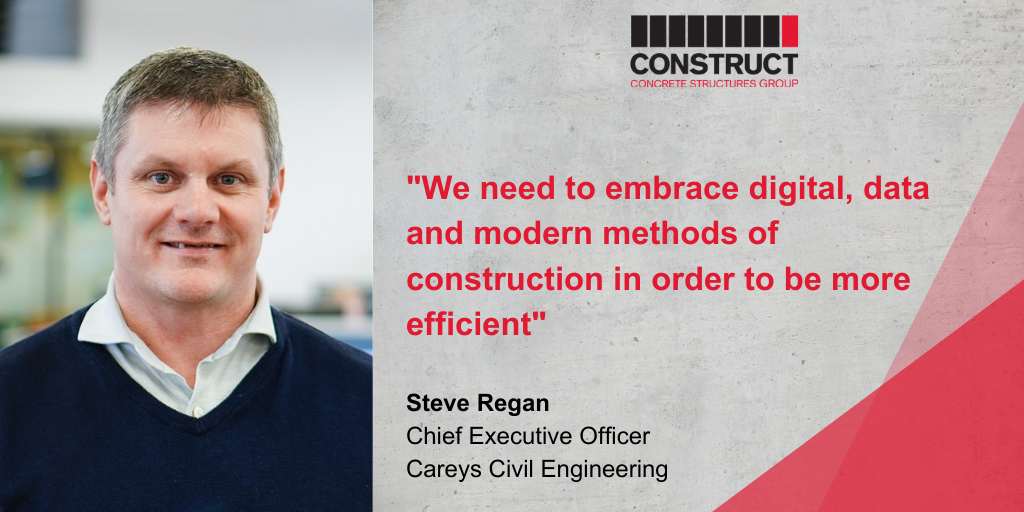
Steve, tell us a little about the company.
Careys is a family-run self-delivered business, started and still owned by three brothers. We work in all sorts of sectors building concrete structures, including residential tower blocks, basements, power stations – anywhere you can apply the skill of building concrete structures. This year we’ve turned over £600 million.
I’m a civil engineer by profession and have been with the company for 14 years.
What are the main challenges facing the concrete structures industry today?
The first concerns the economics of the regions; where the government is spending money has a big impact on the construction business. For example, we’ve seen big dips in volume of workload in London because of Brexit uncertainty, especially in the private market. We’ve seen growth outside of that due to investment in infrastructure markets, but that’s more nationally than in London and the South East. So, the challenge is effectively finding the right way to apply our skills that balances the different sectors.
The second is about people and skills. We employ 4,000 people, so we have the challenge around training and bringing the right skills into the industry. But doing that is tough and we have to balance that against the economics. If we employ a workforce in London and the economy dives there, they won’t necessarily all want to work in the north instead.
What can the industry do to tackle these issues?
Because we’re a big employer, what we try to do is create a channel culture to bring skills into the industry through our training centre. We can teach them the skills if they have the right attitude. So, we’ve invested in training to help with our own skills challenge; we’re not just reliant on people walking in the gate, fit for purpose.
The rewards of a construction career can be phenomenal, but it’s hard to attract people because the hours and working conditions can be pretty tough. One of the things we’re looking at now is how a construction business can work with agility. We’ve got fixed locations and limited timescales, but we’re looking at ways that we can bring flexibility and agility into the construction workplace.
The economic challenge is harder to meet because it’s outside our control. We try to tackle that through the diversity of where we apply our skills; we’re not only focused on certain locations, sectors or markets.
How about the opportunities for the concrete structures industry?
There are massive opportunities for companies that self-deliver work. We need to embrace digital, data and modern methods of construction in order to be more efficient, plus there’s a lot of waste in the whole construction process. There’s a big opportunity for companies to help remove steps in that process and bring real value to their clients. The entire industry is set up to be pretty archaic, so we need to try and streamline that process in order to make us all more efficient.
You can download the PDF interview here.